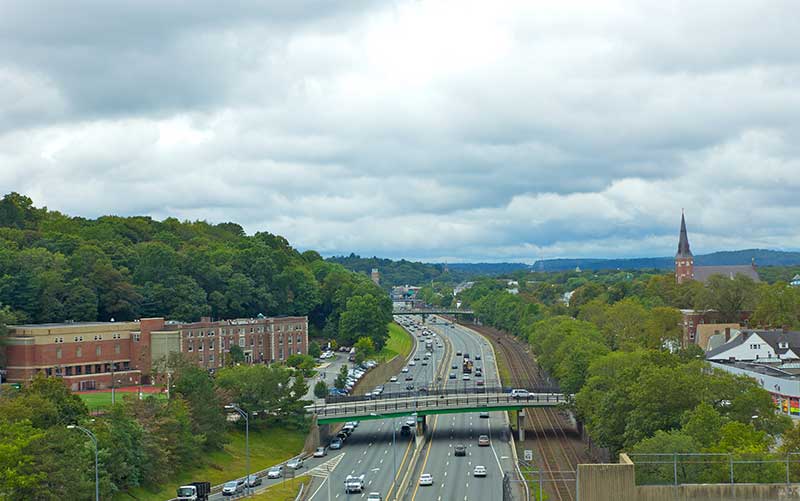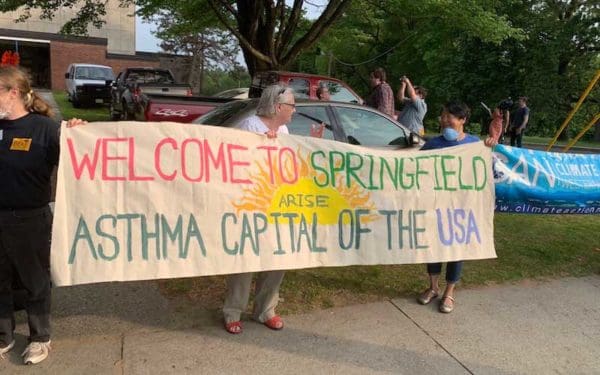
Massachusetts has made progress on transportation projects, but still lacks enough funding to meet all of the state's critical needs. Photo: Chandra Dhas/IStock
The Transportation for Massachusetts coalition – of which CLF is a member – today released the latest in a series of reports evaluating the implementation of the Commonwealth’s landmark Transportation Finance Act of 2013. The Keeping on Track reports are aimed at ensuring the new law’s success at addressing the most pressing needs of the state’s transportation system.
New this year, the report also includes progress on the implementation of the 2009 Transportation Reform Act, in order to provide a clearer and more complete evaluation of our transportation system.
Transportation Challenges: Safety, Equity, and Climate Change
The Transportation Finance Act was passed in July of 2013 as a much-needed funding package projected to raise an estimated $600 million dollars per year over the next five years. Though the promised funding levels were (and still are) historic, they fall far short of addressing the full spectrum of funding needs – estimated at $1 billion per year over the next 20 years – across Massachusetts’s roads, rails, and public transit systems.
As the author of each of the three progress reports so far, I am keenly aware of the state’s transportation needs. These needs must be addressed for the sake of safety, greater and more equitable access to public transit, and our climate, as the way we get around is the biggest contributor to climate-damaging emissions in the state. The progress report released today finds positive progress resulting from the infusion of funds provided by the 2013 Finance Act, but the Commonwealth still lacks the resources to meet the state’s critical transportation needs.
The Pluses: Rail, Electric Tolls, MBTA Car Upgrades
On the plus side, a limited number of projects have begun to take root. The Massachusetts Department of Transportation (MassDOT) has made progress on improving rail service along the Knowledge Corridor from Hartford, Connecticut, to Springfield, returned passenger train service to Holyoke, and moved to all-electronic tolling along the Mass Turnpike, saving drivers considerable time on the road. Projects in the works over the next three to five years include the rehabilitation of the I-91 Viaduct in Springfield, replacement of Red and Orange Line cars on the MBTA, and increased investments in the repair and maintenance of bridges.
More to Do: More Rail, More MBTA Car Upgrades, Urgent Road Repairs
However, to address all of the state’s transportation needs, a bi-partisan commission, MassDOT, and other experts have estimated that more than $600 million per year over the next 10 years is still needed – above and beyond the resources pledged by the Transportation Finance Act. Without these additional funds, key repairs and projects will be left to languish, from assisting cities and towns with local road repair to upgrading buses and Green Line cars on the MBTA, to expanding rail service to serve more communities.
If the Commonwealth is aiming for a transportation system that will help the state thrive not just now but in the decades ahead, maintaining our current transportation system is crucial, but it’s not enough. Changing demographics, such as fewer drivers due to aging baby boomers and fewer millennials getting driver’s licenses, rapid changes in transportation technology, such as self-driving vehicles, and the increasing challenges of climate change will require smart planning and significant investment in our transportation system.
CLF and our partners at Transportation for Massachusetts will continue to push for the funding we need to modernize Massachusetts’s transportation system to one that’s cleaner, more efficient, and equitable.



